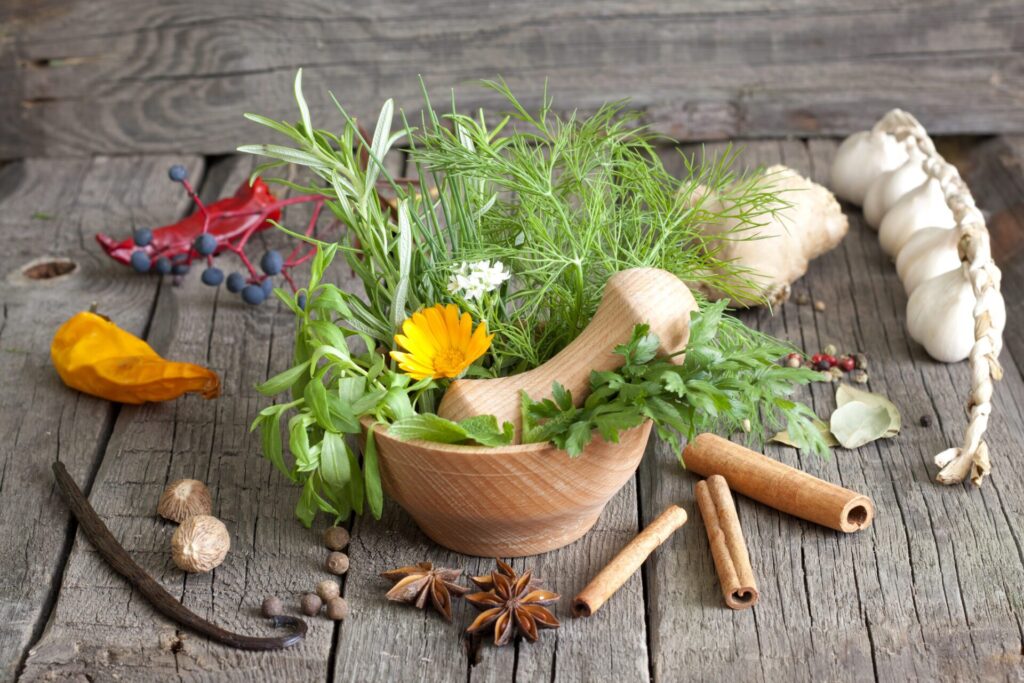The Rising Need for Natural Stress Relief
In today’s fast-paced world, stress and anxiety have become part of daily life for many people. From work deadlines to personal pressures, mental strain can take a toll on both emotional and physical health. While prescription medications can help, they often come with side effects. For those looking for gentler, holistic alternatives, herbal remedies offer a natural path to stress and anxiety relief. For centuries, herbs have been used to calm the mind, balance emotions, and promote a sense of inner peace.
Why Herbal Remedies Work for Mental Calm
Herbal remedies help the body adapt to stress by supporting the nervous system and hormonal balance. Many herbs used for anxiety relief are known as adaptogens—natural substances that help the body adjust to physical, mental, or emotional stressors. Others have calming or sedative properties that ease tension and promote better sleep. Unlike synthetic drugs, herbal solutions often work gradually and holistically, helping to restore balance over time rather than just masking symptoms.
Ashwagandha: The Stress-Fighting Adaptogen
Ashwagandha is one of the most well-known herbs in Ayurvedic medicine, praised for its ability to reduce stress and promote relaxation. It works by lowering cortisol levels—the body’s main stress hormone—and supporting adrenal function. Regular use of ashwagandha can help improve sleep quality, boost mood, and enhance energy levels. It can be taken in capsule or powder form and is often mixed into teas or smoothies. Ashwagandha is ideal for those experiencing chronic stress or burnout.
Lavender: Nature’s Calming Fragrance
Lavender is widely recognized for its calming scent and powerful anxiety-reducing effects. Whether used as an essential oil, tea, or dried flower, lavender can soothe the nervous system and promote relaxation. Inhaling lavender oil or applying it to the skin can help reduce feelings of anxiety and agitation. Drinking lavender tea before bed may also improve sleep quality and reduce insomnia caused by stress. Its gentle nature makes it a favorite for both adults and children.
Chamomile: A Gentle Herb for Calm and Sleep
Chamomile has been used for centuries to calm the mind and ease nervous tension. It is especially helpful for those who experience anxiety alongside digestive discomfort, as it soothes both the stomach and the nerves. Drinking chamomile tea is one of the simplest ways to unwind at the end of a stressful day. The herb contains apigenin, a compound that binds to certain brain receptors to reduce anxiety and induce relaxation without sedation.
Passionflower: Easing Restlessness and Racing Thoughts
Passionflower is a lesser-known but highly effective herb for calming the mind. It’s often used to reduce nervous tension, promote restful sleep, and ease symptoms of generalized anxiety disorder. Passionflower works by increasing the levels of gamma-aminobutyric acid (GABA) in the brain, which helps regulate mood and sleep. It can be consumed as tea, tincture, or in capsule form. Unlike some sedatives, passionflower typically doesn’t cause grogginess, making it suitable for daytime use as well.
Lemon Balm: Uplifting Yet Relaxing
Lemon balm is a citrus-scented herb in the mint family, known for its uplifting and calming properties. It’s particularly helpful for easing mild anxiety, promoting focus, and supporting emotional balance. Lemon balm can be used in teas, tinctures, or even added to salads and smoothies. It has a mild, pleasant flavor and is often paired with other calming herbs like chamomile or valerian. For those experiencing mental fatigue or nervous exhaustion, lemon balm can offer gentle relief.
Valerian Root: Deep Rest and Nervous System Support
Valerian root is a powerful herb known for its sedative effects, making it a popular natural remedy for insomnia and high anxiety. It helps calm overactive nerves and supports deeper, more restful sleep. Valerian is typically taken in capsule or tea form about an hour before bed. While its strong earthy aroma might not appeal to everyone, its effectiveness in reducing anxiety symptoms and aiding sleep is well-documented. It’s best used occasionally or during times of acute stress.
Holy Basil (Tulsi): The Sacred Stress Reliever
Holy basil, also known as tulsi, is considered a sacred plant in Indian culture and is revered for its healing properties. It acts as an adaptogen, helping the body adapt to stress and balance cortisol levels. Holy basil supports clarity of mind, emotional resilience, and physical endurance. Drinking tulsi tea daily can help maintain calm energy throughout the day and improve focus. It’s especially useful for those dealing with mental fog or mood swings.
Rhodiola Rosea: Energy and Emotional Balance
Rhodiola rosea is another adaptogenic herb that supports the body’s response to stress. It helps reduce fatigue, improve mental performance, and support a stable mood. Rhodiola works particularly well for stress-related exhaustion, brain fog, and low energy. It may also support serotonin and dopamine levels in the brain, improving overall emotional wellbeing. Taken as a supplement or tea, Rhodiola is ideal for those who need both calm and mental clarity.
Incorporating Herbal Remedies into Your Routine
Adding herbs into your daily life doesn’t require drastic changes. Herbal teas, tinctures, capsules, or essential oils can easily be incorporated into your morning or evening routine. Choose one or two herbs that match your needs and body type, and give them time to work. Be consistent, but start slowly to see how your body responds. Combining herbal remedies with other wellness practices—like deep breathing, journaling, and regular sleep—will increase their effectiveness.
Safety and Considerations
While herbs are generally safe, they are not without potential interactions or side effects. Always consult a healthcare provider, especially if you are pregnant, breastfeeding, or taking prescription medications. Some herbs, like valerian or passionflower, can cause drowsiness and may not be suitable during the day or when operating machinery. Start with small doses and buy from reputable sources to ensure purity and potency.
Conclusion: Nature’s Gentle Path to Peace
Herbal remedies offer a natural, time-tested way to manage stress and anxiety without relying solely on pharmaceuticals. Whether it’s a calming cup of chamomile tea before bed, a few drops of lavender oil on your pillow, or a daily dose of ashwagandha to support resilience, herbs help reconnect us with nature’s healing rhythm. In a world that often demands speed and productivity, turning to gentle herbal support can create moments of balance, calm, and deep restoration—right from the comfort of home.




